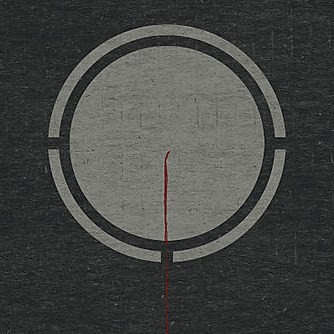Reminder: This post is from the Community Actual Discussion. You’re encouraged to use voting for elevating constructive, or lowering unproductive, posts and comments here. When disagreeing, replies detailing your views are appreciated. For other rules, please see this pinned thread. Thanks!
This weekly thread will focus on the phrase “The Cruelty Is The Point”, which may take some explanation.
Frequently on Lemmy (and elsewhere), I see the phrase in comment threads. In my experience, it has been referencing any policy that is contrary to a Liberal or Leftist belief that the thread discusses. I have found the phrase when discussing trans issues, housing, taxes, healthcare, abortion, and many more.
This does not mean it doesn’t exist elsewhere, it is simply where I see it since I spend much of my social media time on Lemmy. If your experience differs, please let us know!
Some Starters (and don’t feel you have to speak on all or any of them if you don’t care to):
- Do you believe this? If so, why?
- Is it true / false in some or all scenarios?
- Is it with certain groups or regarding certain things?
- Do you feel that speech like this is conducive to fixing societal issues?
- Is what is considered “kind” always the best course of action?


No, I do not personally believe this. I believe that this phrase is one of the shortest-form strawman “arguments” that exist and is usually spoken by itself with zero justification or understanding of the issue referenced.
And beside that, it should be obvious that it is very often not true. Most of the time with issues “the point” is cost-saving, stubbornness, cause & effect disagreements, or difference of opinion on how to carry things out. If there is cruelty involved, it is a side-effect, not the point. Even then, the side being accused may feel the cruelty lay on the opposing side because cruelty is a moral argument, and you can not apply morals universally.
The phrase is like saying “the point of drinking water is to touch your genitals while peeing.” It actively avoids the real point in order to make the entire act seem absurd and is a bad faith argument from the jump.
A good way to find out if “cruelty is the point” is to do a thought experiment. “If they could do / remove the crux of the issue and the perceived oppressed group would still be happy some other way, would this still be an issue?”
For example (and I am not passing a value judgment here, I’m simply doing the thought experiment with a real-world example), if a state passed an anti-transitioning law, but found a single pain-free pill to remove all dysphoria from the affected group, would they allow that pill? If yes, then the cruelty didn’t factor into the decision - the issue and how to deal with it did.
To be absurdist, if you feel they wouldn’t allow the “pill fix”, and cruelty is still the point, then why have they not made the suffering worse? They could say “you can have whatever treatment you want, but only if you allow us to torture you for 6 hours per day!”
If a person eats meat, but is grossed out by factory farming and avoids it, is the point the cruelty or the ease, nutrients, and flavour of a standard omnivorous diet? Rationally, do you really feel that their first thought before biting into a burger is “Fuck this cow, I hope it died screaming.”
No. That would be insane.
Thinking and speaking in this fashion only removes the ability to deal with difficult situations in a meaningful or rational way and simply shows others that you can’t even pretend to fathom other people. It shows that the speaker is not empathetic in the slightest, but sure would like to be perceived as such by their in-group.
Part of the reason for the phrase I’d say is that said policies aren’t even effective at what they aim to do. It often costs more and makes their perceived problem worse (or at very least, hurts their own side in some other way), and it’s even worse for the original problem. When this continuously occurs it doesn’t seem like a good-faith action.
Cruelty is the only thing that they can consistently get right. Could it be that they’re just that incompetent? Maybe, but it sure seems like they’re happy with the result.
I agree that things done for an many reasons including ineptness, nonscientific views, fear, reactionary politics, poor training, or even doing things from a detached perspective can seem cruel, but the cruelty is not the point. The cruelty is a byproduct, not the goal. It’s a bad and oversimplified phrase and in nearly every serves to obfuscates issues.
For example, knocking down a big tree can seem cruel if you’re a squirrel and live there. But if you’re a human, maybe you know that that tree was damaged in a storm and is about to fall over and destroy a few homes and potentially kill someone.
A serial killer torturing a victim? Maybe the power is the goal. Maybe the rush is the goal. The cruelty? It’s a means to an end. Understanding goals is how we stop people. Hand-waving away true reasons behind things doesn’t help us understand and therefore stop them.
You can handily cherry-pick examples throughout history of people being outwardly psychotic, and I’d agree with you. However, when used in modern-day political contexts, most of the time it’s used in reference to the things I mentioned. Ineptness, fear, nonscientific views, etc.